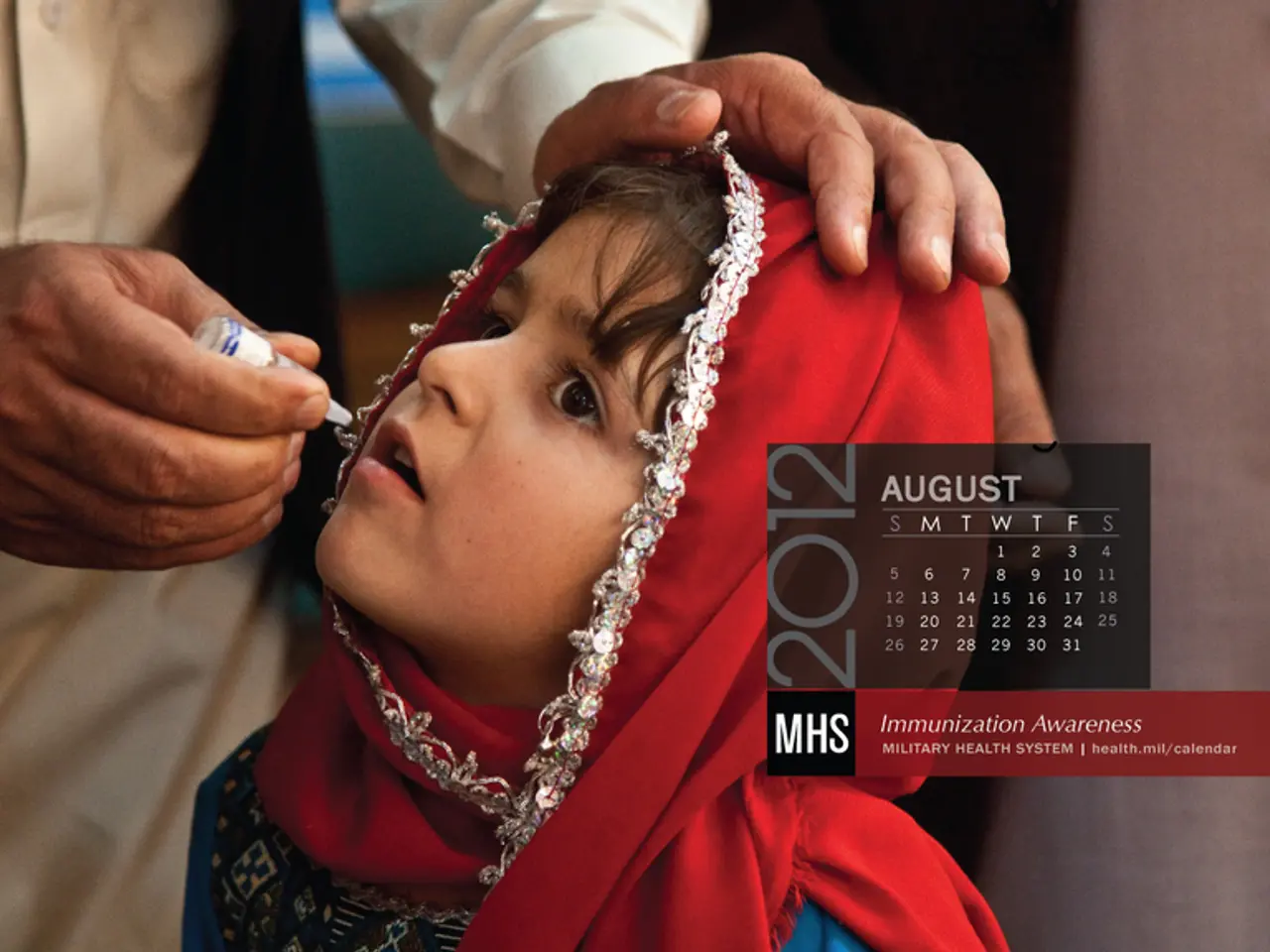Warning issued by medical body: Immunization levels are insufficiently high - Vaccination numbers are insufficiently high, according to the health board's alert
In Germany, the vaccination rates for young children are falling short of the necessary levels to prevent outbreaks of vaccine-preventable diseases such as measles, diphtheria, and whooping cough. The current vaccination rates for children around 2 and 15 months old are below the herd immunity target of 95%, with only 64% of children aged 15 months having received the three vaccine doses needed for basic immunization against diphtheria, tetanus, and whooping cough, and only 77% of children aged two having a basic immunization against measles.
These suboptimal vaccination rates increase vulnerability to outbreaks among children, as highlighted by the significant recent surges in measles and whooping cough cases in Europe. The World Health Organization (WHO) Europe reports a tripling of whooping cough to nearly 300,000 cases and more than 125,000 measles cases in 2024, partly due to vaccine hesitancy and complacency.
The Medical Association of Lower Saxony (ÄKN) is concerned about these trends, as they threaten children's health by exposing them to preventable diseases and could potentially overwhelm healthcare systems. Key reasons for the concern include vaccination coverage below the 95% herd immunity threshold, rising vaccine hesitancy and misinformation, and the ongoing risks posed by these diseases.
The ÄKN advocates for strengthening local health systems, improving vaccine availability, and combating misinformation to improve vaccination rates among children. Thomas Buck, a pediatrician and adolescent medicine specialist, has stated that the incomplete vaccination protection for the youngest endangers the health of children unnecessarily. Marion Charlotte Renneberg, deputy president of the ÄKN, has urged parents to vaccinate their children on time and sufficiently.
In addition, the ÄKN recommends that adults consider booster vaccinations recommended by the Standing Vaccination Commission (STIKO) and that a flu vaccination is recommended for adults in the fall. It is important to protect infants, children, and fellow human beings, according to the ÄKN statement.
References:
[1] WHO Europe, "Measles and Rubella Elimination in the WHO European Region," accessed on May 25, 2023, https://www.who.int/immunization/monitoring_surveillance/rubella/measles_rubella_elimination_europe/en/
[2] European Centre for Disease Prevention and Control, "Vaccine-preventable diseases in the European Union and European Economic Area, 2022," accessed on May 25, 2023, https://www.ecdc.europa.eu/en/publications-data/vaccine-preventable-diseases-european-union-european-economic-area-2022
[3] Medical Association of Lower Saxony (ÄKN), "Vaccination Protection," accessed on May 25, 2023, https://www.aekn.de/themen/impfungsschutz/
[4] Robert Koch Institute, "Immunisation Coverage in Germany," accessed on May 25, 2023, https://www.rki.de/DE/Content/Infekt/Kindergesundheit/Impfungen/Aktuelle_Informationen/Impfquoten/Impfquoten_in_Deutschland.html
- To enhance the health and wellness of children, the ÄKN proposes that community policies should focus on improving local health systems, increasing vaccine availability, and combating misinformation about vaccines, similar to scientific approaches used in addressing medical-conditions.
- As the rise in vaccine hesitancy and complacency contributes to inadequate vaccination rates for diseases like measles and whooping cough, it is essential to prioritize vocational training for healthcare professionals in communicating the importance of timely and sufficient vaccinations to parents, promoting informed decision-making and herd immunity.




